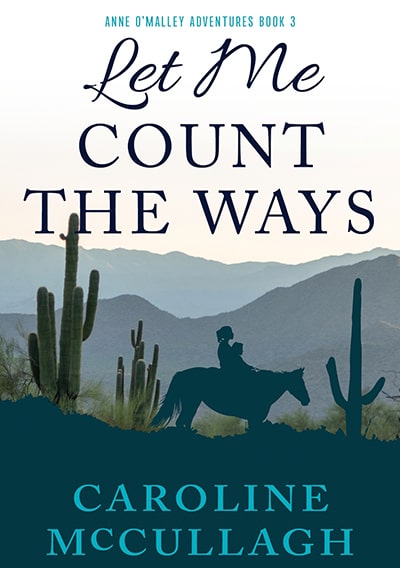The first sentence in your writing is called the hook. It is quite literally intended to hook the reader into to wanting to buy your book. If you’re intending to try traditional publishing, it should hook the reader at whatever agency you send your manuscript to. You don’t have to have the perfect hook when you’re first writing your book or article, but by the time you have your final draft, it should be as good as you can make it.
Below are samples of hooks from fiction and nonfiction books. Have a look. Do they make you want to read more? See if you can figure out what works and what doesn’t.
Two things to notice: Look at how different in style newer books are from older ones. In previous decades, people had more time to read and didn’t mind a leisurely beginning. Also, look at the similarities and differences between the fiction hooks and the nonfiction ones.
Finally, have a look at some of the books you have at home. What do you think of those hooks?
By the way, it doesn’t matter whether you call it Chapter 1 or Prologue or Introduction or anything else, you hook should be where the readers eyes are going to start.
Note: you can read the hooks of most published books by finding them on the Amazon Books website and using the “Look Inside” function.
And an extra note: This is one more example of why we can’t depend on Word for Windows or any other software’s grammar and spell checker. You’d have been amazed at how many things were highlighted as needing correction in the following quotes. A writer needs to learn when to ignore criticism and when to pay attention.
Fiction
I. Lieutenant Bligh: The British are frequently criticized by other nations for their dislike of change, and indeed we love England for those aspects of nature and life which change the least. Here in the West Country, where I was born, men are slow of speech, tenacious of opinion, and averse – beyond their countrymen elsewhere – to innovation of any sort.
Mutiny on the Bounty
Charles Nordhoff and James Norman Hall, 1932
* * *
Knoxville: Summer 1915: We are talking now of summer evenings in Knoxville, Tennessee in the time that I lived there so successfully disguised to myself as a child. It was a little bit mixed sort of block, fairly solidly lower middle class, with one or two juts apiece on either side of that.
A Death in the Family
James Agee, 1938
* * *
Chapter 1: We were using the old blue china and the stainless steel cutlery, with place mats on the big oval table and odd-sized jelly glasses for the wine. The good stuff was all packed and stored, and the Salvation Army was due the next day for the leftovers.
Red Sky at Morning
Richard Bradford, 1968
* * *
I. FL: Standing amid the tan, excited post-Christmas crowd at the Southwest Florida Regional Airport, Rabbit Angstrom has a funny sudden feeling that what he has come to meet, what’s floating in unseen about to land, is not his son Nelson and daughter-in-law Pru and their two children but something more ominous and intimately his: his own death, shaped vaguely like an airplane. The sensation chills him, above and beyond the terminal air-conditioning. But, then, facing Nelson has made him feel uneasy for thirty years.
Rabbit at Rest
John Updike, 1990
* * *
The End Toward Idaho: . . . Click. From where I was sitting on the bumper of the Winnebago I was doing my utmost to outstare that camera of hers, but as usual, no such luck. You would think, wouldn’t you, that a person with a whole rodeo going on around her could come up with something more highly interesting to spend film on than me.
Ride with Me, Mariah Montana
Ivan Doig, 1990
* * *
Omega-1: On a late-winter evening in 1983, while driving through fog along the Maine coast, recollections of old campfires began to drift into the March mist, and I thought of the Abnaki Indians of the Algonquin tribe who dwelt near Bangor a thousand years ago.
Harlot’s Ghost
Norman Mailer, 1991
* * *
1 Queen of Nothing: Women on their own run in Alice’s family. This dawns on her with the unkindness of a heart attack and she sits up in bed to get a closer look at her thoughts, which have collected above her in the dark.
Pigs in Heaven
Barbara Kingsolver, 1993
* * *
I have been afraid of putting air in a tire ever since I saw a tractor tire blow up and throw Newt Hardbine’s father over the top of the Standard Oil sign.
The Bean Trees
Barbara Kingsolver, 1998
* * *
Around the grave in the rundown cemetery were a few of his former advertising colleagues from New York, who recalled his energy and originality and told his daughter, Nancy, what a pleasure it had been to work with him.
Everyman
Philip Roth, 2006
* * *
It was early evening on Thursday the first week of July, and Alexa and I were walking through San Julian Park in Skid Row, on our way back from the LAPD Central Division Jail.
White Sister
Stephen J. Cannell, 2006
* * *
Non-fiction
Introduction: It was a brilliant winter day, and the boy wrapped in a smelly horseblanket, sat on the cliffs shivering with excitement.
Masked Gods: Navaho and Pueblo Ceremonialism
Frank Waters, 1950
* * *
Prologue: Today is Tuesday, 24 September 1991. My red Mercedes Kombi is moving down the tarmac strip of the Inn Valley motorway, as it does every morning. Only this morning began differently.
The Man in the Ice:
Konrad Spindler, 1994
* * *
Once on a Wednesday excursion when I was a little girl, my father bought me a beaded wire ball that I loved. At a touch, I could collapse the toy into a flat coil between my palms, or pop it open to make a hollow sphere
Longitude:
The True Story of a Lone Genius Who Solved the Greatest Scientific Problem of His Time
Dava Sobel, 1995
* * *
In 1997, a Cuban musical phenomenon called Buena Vista Social Club was formed. The album was the unlikeliest of hits—a bunch of aging, forgotten crooners singing songs few had ever heard of in a language most Americans don’t even understand.
Last Dance in Havana:
The Final Days of Fidel and the Start of the New Cuban Revolution
Eugene Robinson, 2004
* * *
Prologue: Gentleman Farmer: “Why can’t Dad be more like other dads?” Katie asked my wife recently. “All my friends’ dads spend Sundays watching football and drinking beer.” Then for good measure she added, “I wish we had a normal family.”
The $64 Tomato:
How One Man Nearly Lost His Sanity, Spent a Fortune,
and Endured an Existential Crisis in the Quest for the Perfect Garden
William Alexander, 2006
* * *









